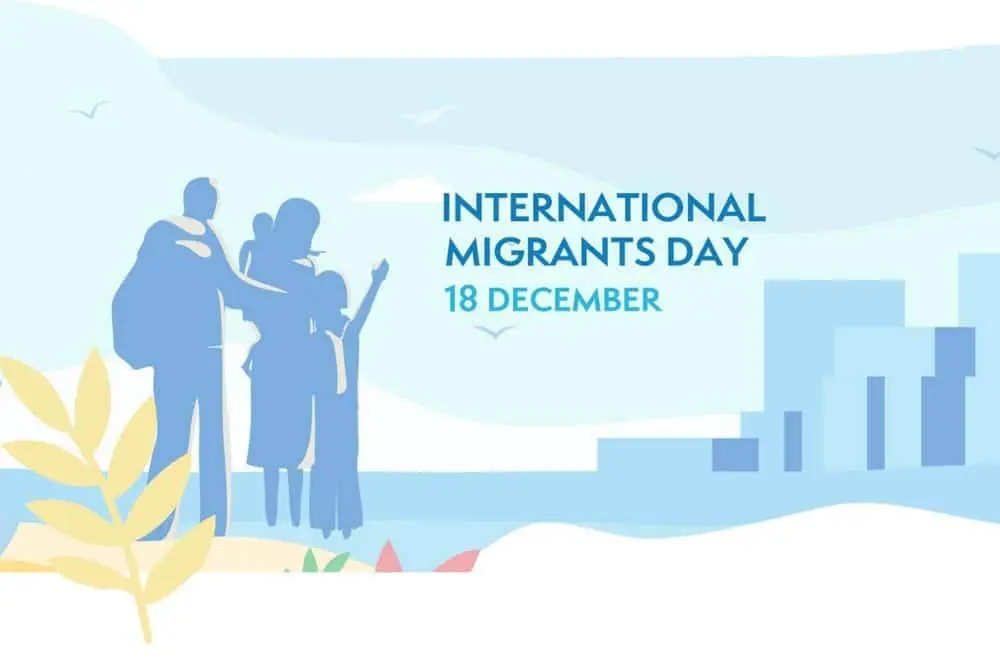International Migrants Day, Migrant smuggling is a global, organized crime that endangers the lives and safety of migrants.
Violence, abuse and the risk of exploitation are widespread traits of this crime. Many migrants die of thirst in deserts, perish at sea, or suffocate in containers.
Smugglers take advantage of people who are escaping poverty, natural disaster, conflict or persecution, or lack of employment and education opportunities, but do not have the options to migrate legally.
“Irregular migrants are targeted by criminal organizations as easy sources of profit. Therefore, going after the money behind migrant smuggling is critical to fighting organized crime. The clandestine nature of smuggling practices endangers the lives of migrants,” explained John Brandolino, Director of Treaty Affairs for the United Nations Office on Drugs and Crime (UNODC).
A global migration study by the International Organization for Migration (IOM) shows that there were 281 million international migrants in the world in 2020, which equates to 3.6 per cent of the global population.
Recent data regarding how many migrants are smuggled is not available, but UNODC found that a minimum of 2.5 million migrants were smuggled in 2016 through 30 of the world’s main smuggling routes.
In November 2000 the UN adopted the Protocol against the Smuggling of Migrants by Land, Sea and Air, which forms part of the UN Convention against Transnational Organized Crime.
The 151 countries that have ratified this treaty to date must ensure that migrant smuggling is criminalized and treat the smuggled migrants humanely, not viewing them as criminals. UNODC helps these countries by supporting transnational investigations into smuggling rings, and the tracing and seizure of the illicit proceeds of this crime.
As we approach International Migrants Day this Sunday, 18 December, UNODC has recorded several successful results of its action to effectively combat criminal networks involved in migrant smuggling.
For example, UNODC has assisted states’ maritime law enforcement authorities in the Caribbean with strengthening their regional tactical and operational responses to migration, with a focus on search and rescue operations. This support is essential if we consider the number of operations and migrants that states are called on to respond to.
By means of an example, as of November 2022, the Dominican Republic has conducted the search for and rescue of 558 migrants and the seizure of 39 boats engaged in migrant smuggling.
Similarly, as of November 2022, Trinidad and Tobago has conducted 519 operations at sea leading to the search and rescue of 151 migrants. UNODC’s Global Maritime Crime Programme has developed regional standardized training on encounters with migrants’ vessels at sea and established a regional training center in Trinidad and Tobago to improve such operations in the Caribbean. Additionally, it has provided access to technology and equipment to support states detect and deter migrant flows at sea while promoting the safety of both boarding teams and migrants.
In October 2022, UNODC and IOM established an interagency cooperation platform focusing on countering migrant smuggling under the UN Network on Migration. This platform also includes the UN High Commission for Refugees and three civil society organizations as members.
On this day, UNODC’s commitment to protecting migrant lives and human rights by tackling the smuggling of migrants has been reaffirmed. As Brandolino notes, “UNODC promotes and supports the dismantling of organized criminal groups that endanger the lives of migrants and show disregard for basic human rights. Criminality can be prevented when migration is facilitated, rather than blocked.”
This month will see the launch of a revised brief on migrant smuggling and human trafficking in the context of the conflict in Ukraine. UNODC Research, through its online UNODC Observatory on Smuggling of Migrants, produces regular data and research updates and analyses on key smuggling issues.
Click here for more UNODC research on migrant smuggling and how to counter it, including the UNODC Study on Smuggling of Migrants, the first UNODC study on this important issue.







